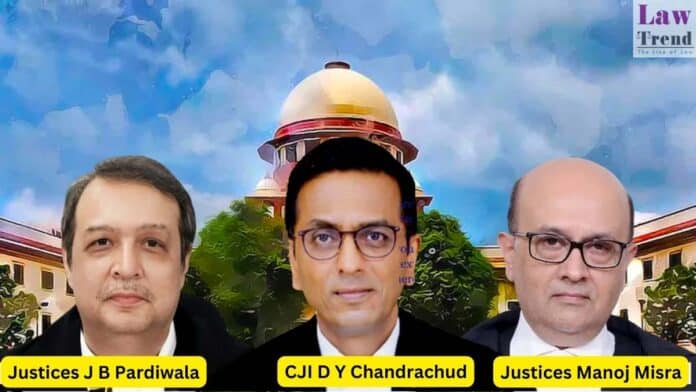The Supreme Court of India has ruled that arbitrators, not courts, should decide on issues of “accord and satisfaction” in disputes where an arbitration agreement exists between parties. This landmark judgment was delivered by a three-judge bench comprising Chief Justice Dr. D.Y. Chandrachud, Justice J.B. Pardiwala, and Justice Manoj Misra in Civil Appeal Nos. 7821-7822
To Read More Please Subscribe to VIP Membership for Unlimited Access to All the Articles, Download Available Copies of Judgments/Order, Acess to Central/State Bare Acts, Advertisement Free Content, Access to More than 4000 Legal Drafts( Readymade Editable Formats of Suits, Petitions, Writs, Legal Notices, Divorce Petitions, 138 Notices, Bail Applications etc.) in Hindi and English.




